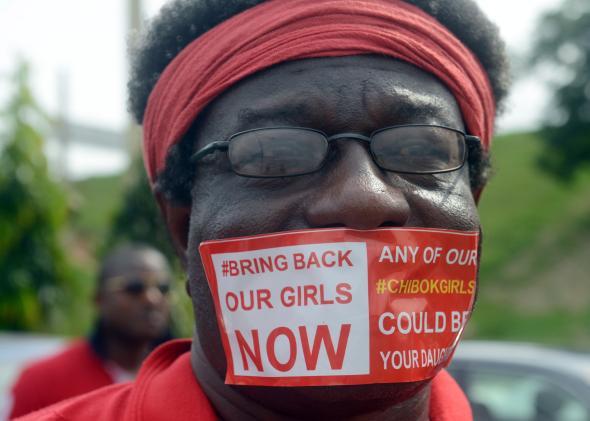Last Friday, there seemed to be cause for cautious optimism in reports that the Nigerian government was on the verge of a cease-fire with Boko Haram. That deal supposedly would have seen the release of the roughly 200 schoolgirls abducted from the town of Chibok in April, an act that provoked international outrage.
But things appear a bit more uncertain today. Suspected Boko Haram fighters carried out two attacks on villages in northern Nigeria over the weekend, killing several people.
The government says these may not have been actual Boko Haram attacks, just criminal groups exploiting the chaos. But this uncertainty points to one of the reasons for being cautious about news of a deal: It’s getting harder to figure out who, exactly, Boko Haram is.
As one government official involved in the negotiation puts it, “Boko Haram has grown into such an amorphous entity that any splinter group could come up disowning the deal. [But] we believe we are talking to the right people.”
One reason to be suspicious: The talks are being held with a previously unknown militant who describes himself as the group’s “secretary general.” Boko Haram’s known leader, Abubakar Shekau, has not yet commented. The Nigerian military recently claimed that it killed Shekau, or at least a man who was posing as Shekau in a series of videos. Shekau himself has been rumored to be dead a number of times, though earlier this month someone claiming to be the Boko Haram leader appeared on video saying, “Here I am, alive.” So, who knows—at this point, Shekau is essentially Schrödinger’s terrorist.
Given the criticism Goodluck Jonathan’s government has already faced over the abduction, it seems like it would be in Boko Haram’s interests to once again embarrass the government. This wouldn’t be the first time that a cease-fire had been declared only for Boko Haram to deny it later. After a deal was reached with the group’s “deputy leader” in July 2013, Shekau quickly released a video message saying, “Let me assure you that we will not enter into any truce with these infidels.”
We should probably know more by Tuesday, when Nigerian government sources say they aim to have the deal finalized. No matter the outcome, this weekend’s attacks are an indication that it probably won’t mean an end to northern Nigeria’s violence. For one thing, Boko Haram isn’t the only game in town. And there are bound to be questions about what exactly the government gave up to get the schoolgirls back. But at least there’s a little bit more hope that the ordeal for the girls of Chibok will soon be coming to an end.
